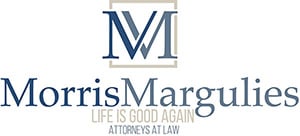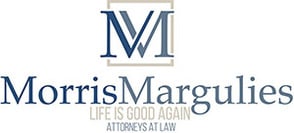
People who have filed for bankruptcy and received their discharge are often shocked when they continue to receive threatening letters and phone calls from their creditors. Some creditors even go so far as to sue on these discharged debts, are awarded judgments and thereafter garnish wages or bank accounts. If this has happened to you, please contact our firm immediately for a consultation. We will make sure the creditor pays you damages for its continued harassment and its unlawful attempt to collect a discharged debt.
The “discharge injunction” under 11 U.S.C. § 524 operates as an injunction against any action to collect, recover, or offset any discharged debt as a personal liability of the debtor. In addition, the discharge injunction voids any judgment based on a debtor’s personal liability for a discharged debt. Taken together, this essentially means that creditors are enjoined from “any action” to collect a discharged debt from a debtor. The idea, according to Congress, was to give the debtor a “fresh start.”
The creditors also have a duty under the law to maintain adequate procedures to prevent a violation of the discharge injunction. For example, creditors and collection agencies who sell a discharged debt, without noting the discharge in their own records, violate the injunction.
Also, if a creditor attempts to “shame” a debtor into paying, by posting signs that publicize the debtor’s default or posting a “public service announcement” about the debtor’s failure to pay may violate the injunction. In some cases, colleges and universities have violated the stay by refusing to issue transcripts to students who discharged their unpaid tuition bills. A creditor may also violate the injunction by refusing to consider a loan modification unless the debtor reaffirms the mortgage loan.
However, it should be noted that the discharge injunction only applies to actions that are aimed at collecting personal debts from the debtor. Liens that are not avoided in the bankruptcy case survive, and the lien holder can enforce the lien. For example, a bankruptcy discharge would permit a foreclosure of a home or the repossession of a car, if the debtor stopped making the monthly payments as long as the automatic stay was no longer in effect. In addition, mortgage lenders are generally permitted to communicate with the debtor to obtain monthly payments associated with the mortgage. However, lenders that go beyond the communication required to facilitate the debtor’s intent to retain the collateral still may violate the discharge injunction. For example, it would not be permissible for a mortgage lender to contact the debtor multiple times a day seeking payment, especially when the debtors indicated their intent to surrender the property in their bankruptcy case.
The courts use their contempt power under 11 U.S.C. § 105 in awarding damages for a creditor’s violation of the discharge injunction. A court may award actual damages, attorney’s fees, punitive damages and potentially damages for emotional distress. Awards for damages can be substantial. The creditor’s action in attempting to collect a discharge debt may also violate the Fair Debt Collection Practices Act and other state and federal consumer protection laws.
The attorneys at the law firm of Margulies & Associates, LLC have assisted thousands of clients through the bankruptcy process, as well as the unlawful collection of debts. Please call us for a consultation today. Laura Margulies is a principal and Fred Nix is an associate in the law firm of Laura Margulies & Associates, LLC. We represent consumers in bankruptcy and litigation matters in Maryland and the District of Columbia. To learn more about our firm visit our web site at www.law-margulies.com.

